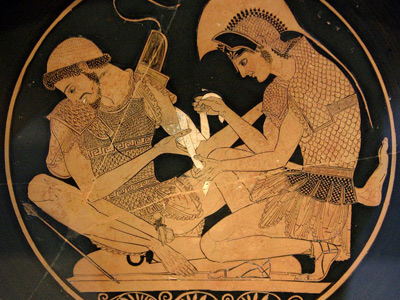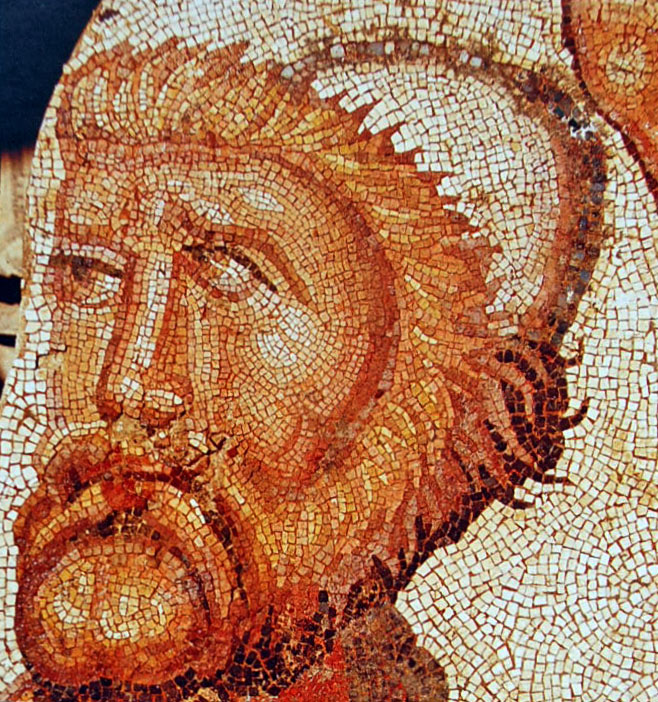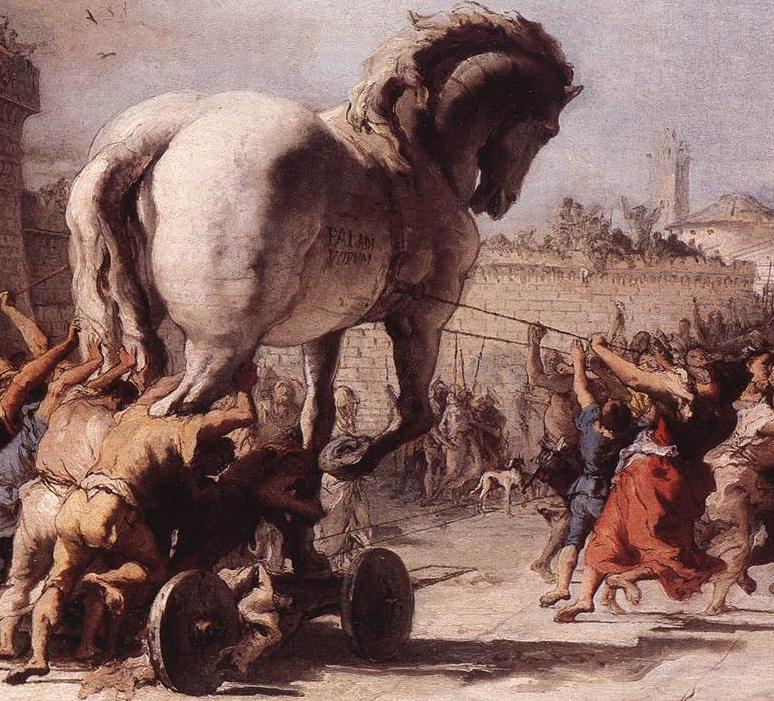Trojan War (1194–1184 BC)
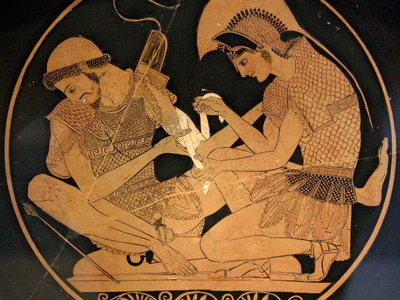
Trojan Horse
The end of the war came with one final plan. Odysseus devised a new ruse—a giant hollow wooden horse, an animal that was sacred to the Trojans. It was built by Epeius and guided by Athena, from the wood of a cornel tree grove sacred to Apollo, with the inscription:
The Greeks dedicate this thank-offering to Athena for their return home.
The hollow horse was filled with soldiers led by Odysseus. The rest of the army burned the camp and sailed for Tenedos.
When the Trojans discovered that the Greeks were gone, believing the war was over, they "joyfully dragged the horse inside the city", while they debated what to do with it. Some thought they ought to hurl it down from the rocks, others thought they should burn it, while others said they ought to dedicate it to Athena.
Both Cassandra and Laocoön warned against keeping the horse. While Cassandra had been given the gift of prophecy by Apollo, she was also cursed by Apollo never to be believed. Serpents then came out of the sea and devoured either Laocoön and one of his two sons, Laocoön and both his sons, or only his sons, a portent which so alarmed the followers of Aeneas that they withdrew to Ida. The Trojans decided to keep the horse and turned to a night of mad revelry and celebration. Sinon, an Achaean spy, signaled the fleet stationed at Tenedos when "it was midnight and the clear moon was rising" and the soldiers from inside the horse emerged and killed the guards.
HISTORY
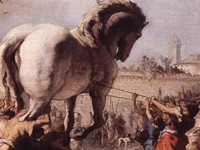
RESOURCES
This article uses material from the Wikipedia article "Trojan War", which is released under the Creative Commons Attribution-Share-Alike License 3.0.
© Stories Preschool. All Rights Reserved.
